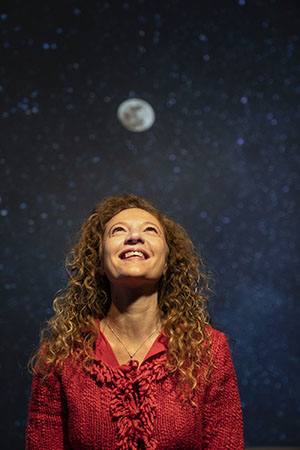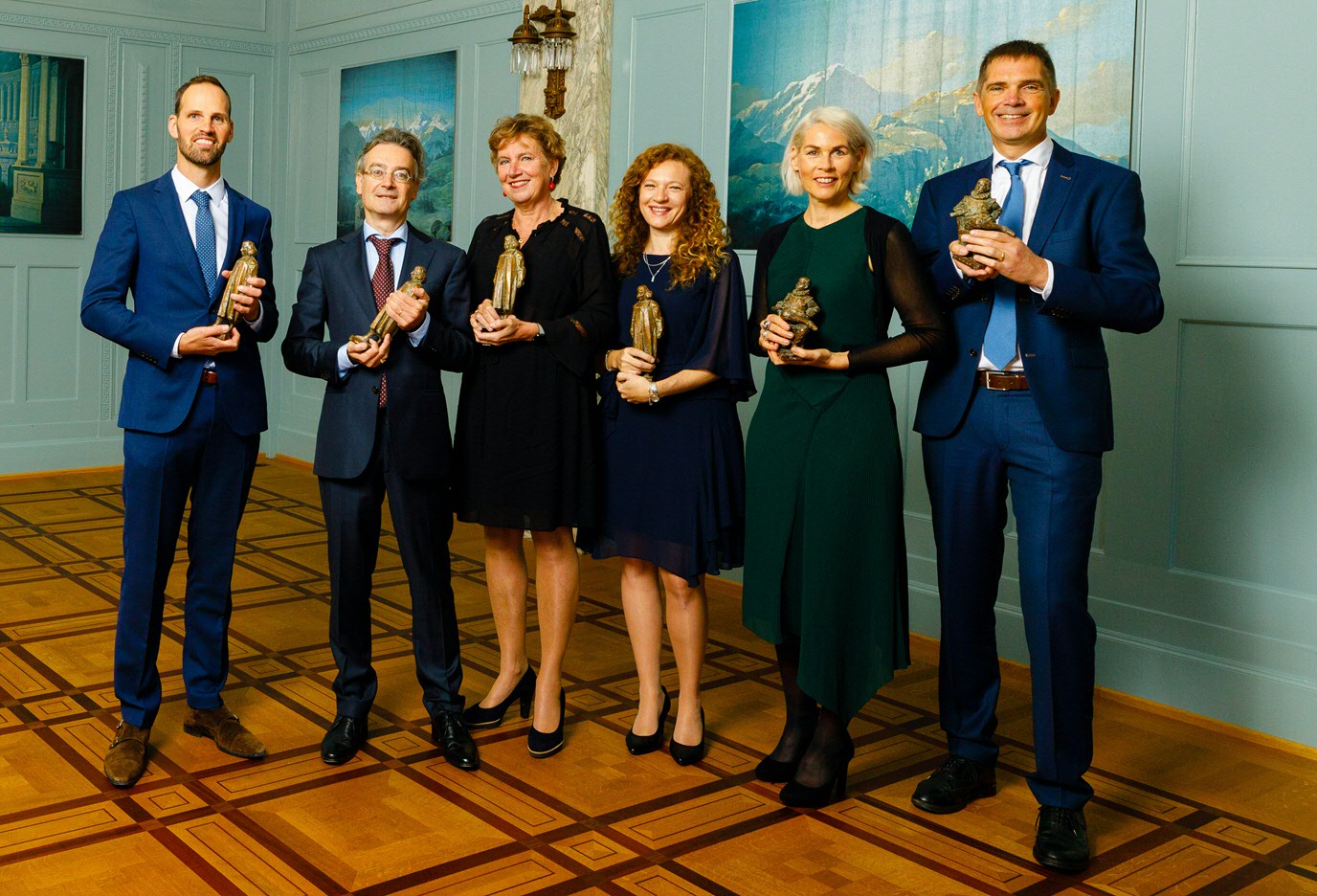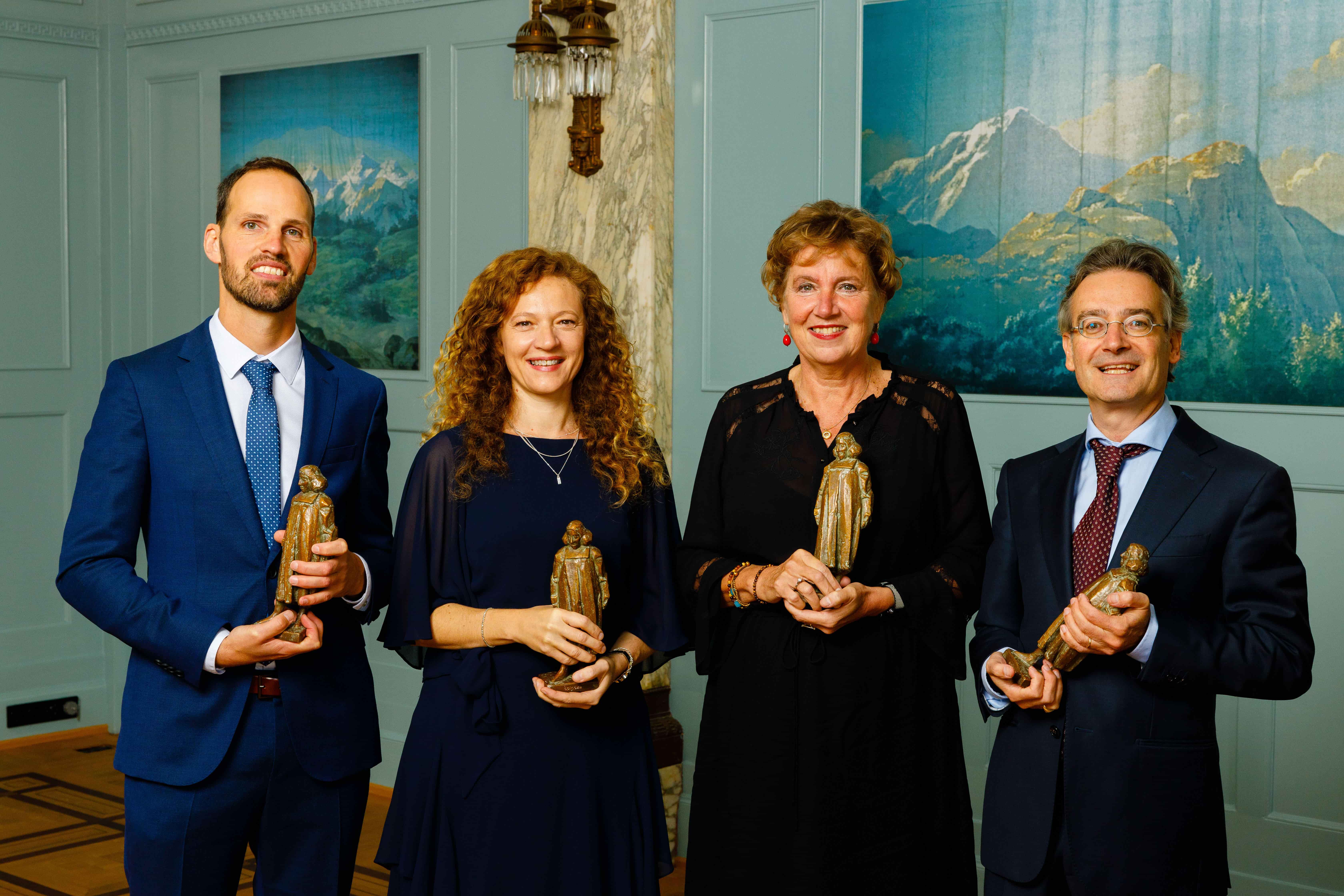Amina Helmi presents plans for Spinoza prize
Amina Helmi, UG professor of Astronomy specializing in Milky Way dynamics, structure and formation, will receive the Spinoza Prize on Wednesday 2 October. In addition to Helmi, another five top researchers receive the NWO Spinoza prize and the Stevin premium from Minister Van Engelshoven of Education, Culture and Science in The Hague. The premiums are the highest distinction in Dutch science .
D uring a festive ceremony historian Bas van Bavel, health psychologist Andrea Evers, medical biologist Yvette van Kooyk, quantum physicist Ronald Hanson, microbiologist Jack Pronk, and University of Groningen astronomer Amina Helmi present their plans with the research grant of 2.5 million euros per person. The scientists are given complete freedom to choose their subject and to involve other researchers.
Amina Helmi speaks about her plans on Wednesday. Hereby she addresses two current questions in astronomy: how did the Milky Way come into existence and what is dark matter? “ESA's Gaia mission has uncovered mysterious breaks in the strings of swallowed galaxies around the Milky Way, possibly caused by lumps of dark matter. To correctly interpret these exciting observations and to determine the nature of the dark matter, new models and data are desperately needed.

Galactic archaeology
Amina Helmi is a professor of Astronomy specializing in Milky Way dynamics, structure and formation at the Kapteyn Institute of the University of Groningen. She is one of the founders of galactic archaeology: the reconstruction of the history of star systems on the basis of their current positions, movements and the stars within them. Her theories, models and experiments are significant contributions to our knowledge about the shape, structure and history of the Milky Way and neighbouring galaxies. Helmi’s vision and leadership were crucial in bringing about the European Gaia space telescope, which has studied the movement and composition of over a billion individual stars since 2013.
Star of the Milky Way
Helmi: “I am fascinated by the history of our Milky Way. The Gaia space telescope is like a pair of spectacles that suddenly allows us to see everything much more clearly. We have recently discovered that the Milky Way swallowed a major star system 10 billion years ago. But what happened before that event? What did the Milky Way look like then? What processes were important at that time? Ultimately, I want to construct the lineage of the Milky Way’.
The Spinoza Prize and the UG
The first Groningen researcher to receive a Spinoza Prize was George Sawatzky (Natural Sciences) in 1996. Four years later, he was followed by Dirkje Postma (Respiratory Pathophysiology); another four years later, Ben Feringa (Organic Chemistry) received the coveted award. Things then quieted down for a while, but the UG made a comeback in 2014, 2015 and 2016. In 2014 and 2015 Theunis Piersma (Global Flyway Ecology) and Cisca Wijmenga (Human Genetics) received the Spinoza Prize. In 2016, Lodi Nauta (History of Philosophy) and Bart van Wees (Science and Engineering) celebrated their Spinoza prizes together.


Attachments
- Amina Helmi; Star of the Milky Way, Spinoza newspaper of the UG
- Photo’s: NWO, fotografie: Studio Oostrum/Hollandse Hoogte
- Video: Portrait of Amina Helmi, with English subtitles
Background
- Short introduction video about Amina Helmi from NWO
- Page about Amina Helmi with video
- Interview with Amina Helmi, January 2019
- Press release Nature publication about origin of the Milky Way, October 2018
- Press release Nature publication about small galaxy, September 2018
| Last modified: | 11 May 2020 11.08 a.m. |
More news
-
03 April 2025
IMChip and MimeCure in top 10 of the national Academic Startup Competition
Prof. Tamalika Banerjee’s startup IMChip and Prof. Erik Frijlink and Dr. Luke van der Koog’s startup MimeCure have made it into the top 10 of the national Academic Startup Competition.
-
01 April 2025
NSC’s electoral reform plan may have unwanted consequences
The new voting system, proposed by minister Uitermark, could jeopardize the fundamental principle of proportional representation, says Davide Grossi, Professor of Collective Decision Making and Computation at the University of Groningen
-
01 April 2025
'Diversity leads to better science'
In addition to her biological research on ageing, Hannah Dugdale also studies disparities relating to diversity in science. Thanks to the latter, she is one of the two 2024 laureates of the Athena Award, an NWO prize for successful and inspiring...
